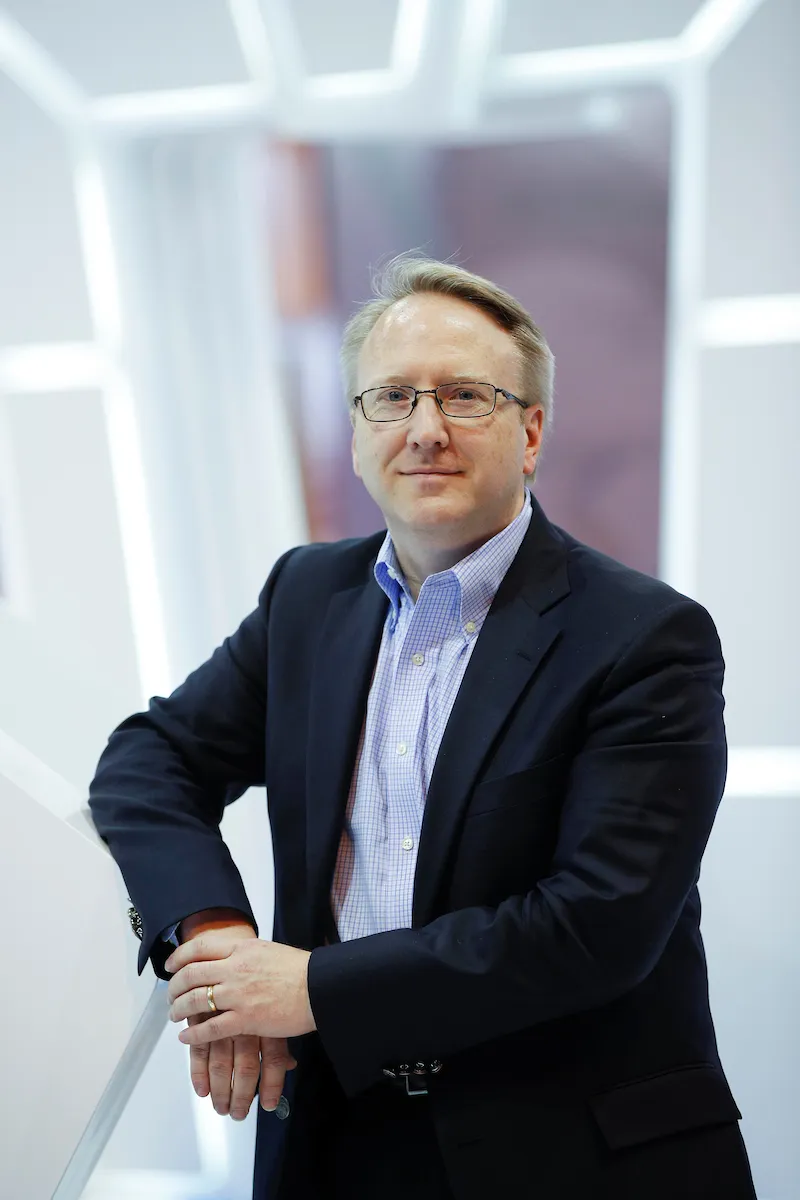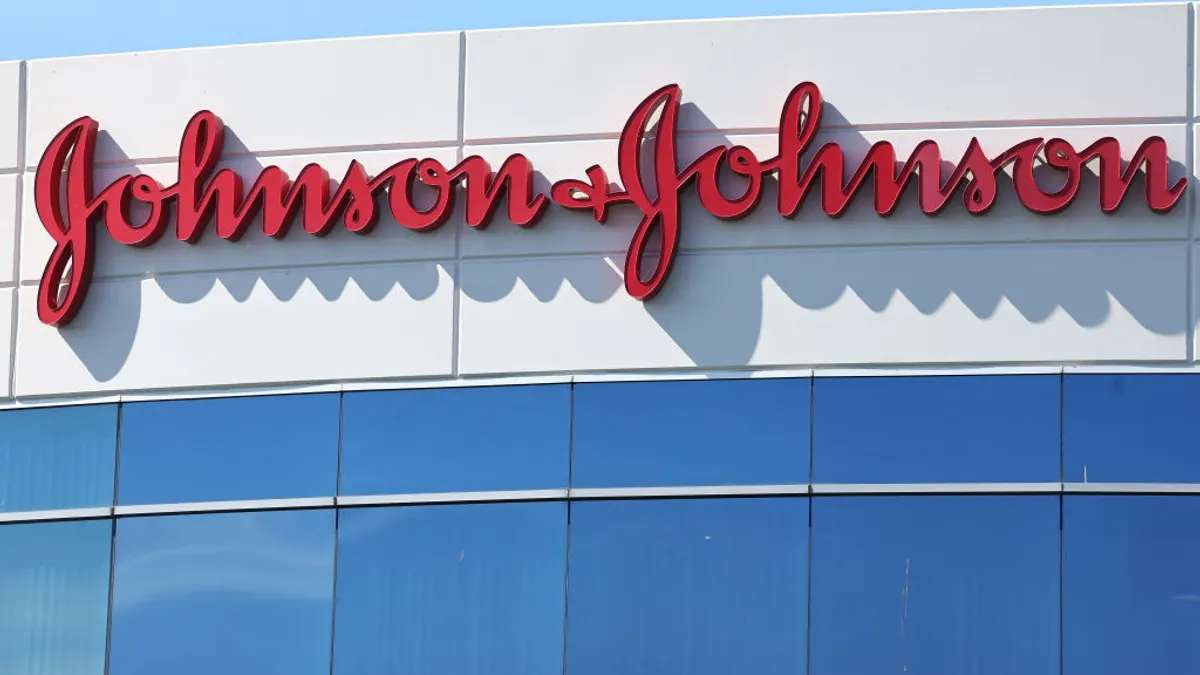“Men with prostate cancer” is a common phrase in clinical trial protocols for prostate cancer treatments. But for pharma and biotech companies that want to move the needle on improving clinical trial diversity and including more LGBTQ+ people in their research, a problem has emerged with these phrases.

“There are lots … of individuals who have prostate cancer who don't use the pronouns he/him,” said Mark Wildgust, vice president of global medical affairs for J&J's oncology division and PharmaVoice 100 honoree. “There are lots of individuals who have prostates that are transgender women, nonbinary or intersex.”
That’s why J&J is actively working to de-gender its clinical trial protocols by replacing gendered words like “men” and “women” with neutral and inclusive words like “people” or “patients.”
“De-gendering a protocol means using inclusive language that removes this idea of gender,” Wildgust said.
Changing the phrase, “men with prostate cancer” to, “people with prostate cancer,” effectively kicks open the door to a clinical trial for people who would have otherwise felt excluded.
“We believe that we should understand how our medicines work in all people,” he said.
It’s part of a larger effort at J&J to improve clinical trial diversity.
“As a patient, you want to know that what you’re taking works for you,” Denise Bronner, director of diversity, equity and inclusion in clinical trials at Johnson & Johnson Innovative Medicine, told PharmaVoice last year. “And if someone like you was never included in the data, but this drug is approved, how would you take that? Would you even want to take that type of medication?”
Excluding transgender and nonbinary people from clinical research is an ongoing challenge for the industry. Although an estimated 1.6 million Americans identify as transgender or nonbinary, less than 1% of U.S. clinical trials include patients from these communities, according to a Parexel report.
“We de-gendered … our master clinical trial protocol within our oncology division, which means that every study we write is inclusive."

Mark Wildgust
Vice president of global medical affairs, oncology division, J&J
Moreover, Wildgust said the pharma industry hasn’t historically done a good job including or engaging with the LGBTQ+ population in general. Some companies don’t even collect sexual orientation and gender identity (SOGI) data in their clinical trials.
“The first part is making sure our trials are inclusive. The second part is [doing] a better job of understanding if we are including those individuals,” Wildgust said. “To be counted, you need to count. Imagine if you had a demographics table in a study report and didn’t say if patients are African American or white or Asian.”
How J&J is making changes
At J&J, the shift started with LIBERTAS, a phase 3 clinical trial in prostate cancer that Wildgust said is J&J’s first de-gendered, transgender-inclusive research study in cancer. It’s actively enrolling now.
“When a lot of people think about prostate cancer, they think about men. But there are many individuals who have prostate cancer, who have prostates, who may not identify as a cisgender male,” Wildgust said. “By de-gendering or removing gender terms … or gender biases, you can show inclusivity to all individuals.”
The LIBERTAS trial involves J&J’s Erleada, which became the first approved drug for non-metastatic castration-resistant prostate cancer in 2018. Now a blockbuster med, J&J has continued developing Erleada, and launched a once-daily option for the drug last year. The LIBERTAS trial will test if the drug improves progression-free survival and other quality-of-life measures when used in combination with intermittent — versus continuous — androgen deprivation therapy.
The company is working to make these protocol changes in its other clinical programs.
“LIBERTAS was the first across our oncology organization,” Wildgust said. “We de-gendered … our master clinical trial protocol within our oncology division, which means that every study we write is inclusive. And it created an enabling environment for the sexual and gender minority community to participate in these trials.”
One strategy has been to de-gender informed consent to broaden the eligibility criteria.
“We don't recognize a cancer by sex. We recognize it by somebody who has a prostate,” he said.
In addition to making changes around protocols and data collection, J&J provided culturally inclusive training for its internal teams that cover everything from understanding disparities to using the right gender-affirming words and terminology to build respect and trust with patients “so those individuals feel comfortable and safe participating in clinical trials,” Wildgust said.
To do this, they worked with an internal J&J employee resource group called Open&Out, as well as with Eli Green from the Trans Affirming Training & Consulting group to create internal education materials and build cultural competency. They’ve also built a scientific and patient advocacy steering committee “that reflects the diversity of who we wanted to include in our studies.” That guidance has helped create protocols, informed consent, recruitment materials and educational resources, Wildgust said.
“We’ve been thoughtful and very intentional looking at inclusive practices, and we've done that through strong internal and external partnerships that we’ve built,” Wildgust said.
Creating broader change
In addition to its internal work, J&J hopes to be a leader in gender inclusive clinical trials across pharma. For instance, it’s creating an educational toolkit for building welcoming and affirming LGBTQ+ clinical studies it will use internally and then offer to other companies for free later this year.
“We're in the process of building that material, and our plan is to give that toolkit away to anybody who would like to get access to it. On the pharma side sometimes things are competitive, [but] some things are non-competitive,” Wildgust said. “We believe this educational toolkit will be a very tangible way in which [pharma companies] can remove some of those barriers around data collection and have really good culturally responsive ways in which to engage these communities.”



















